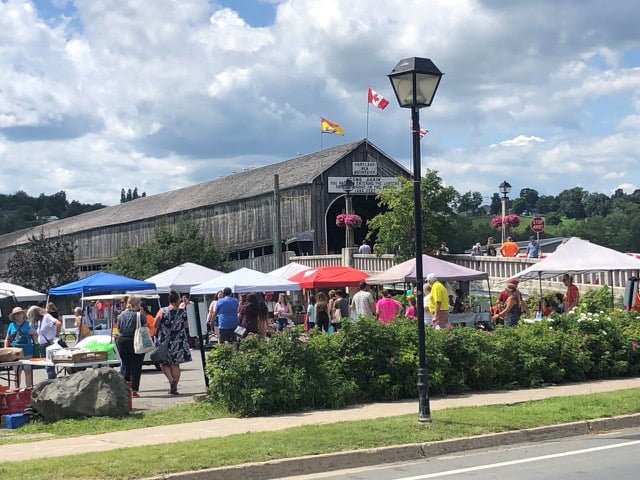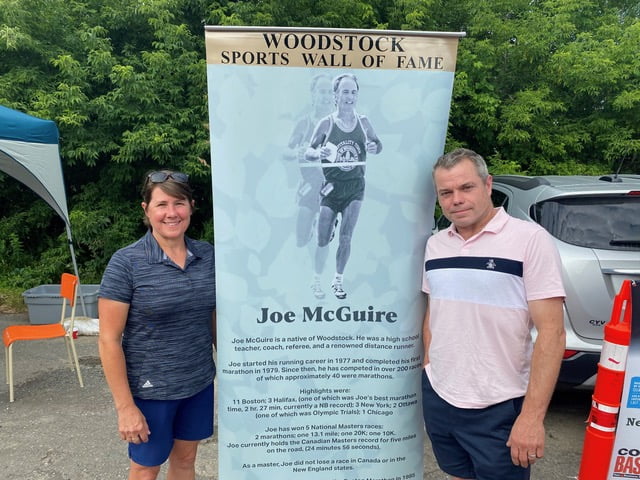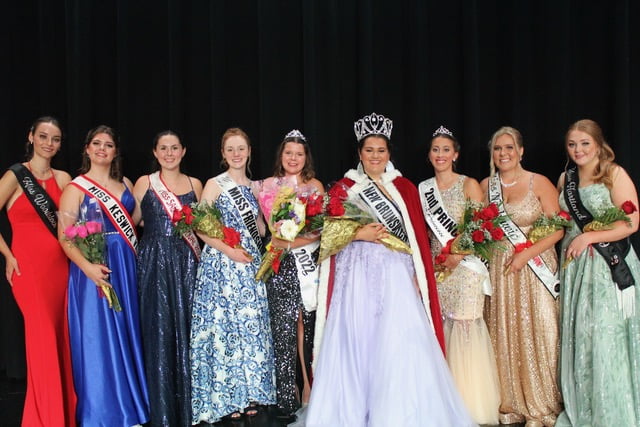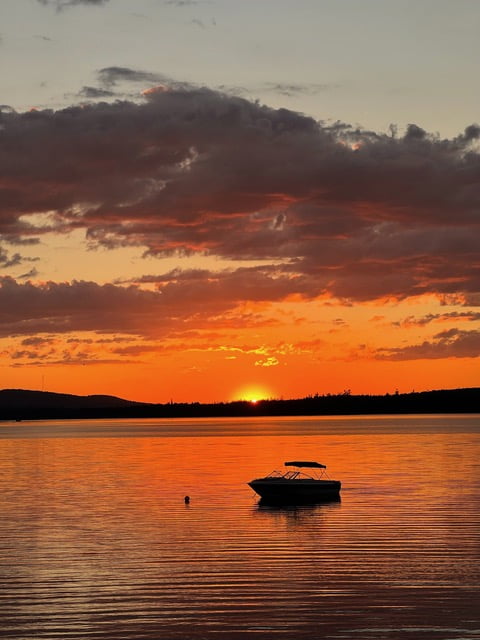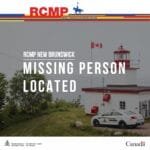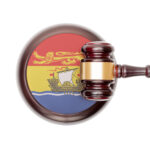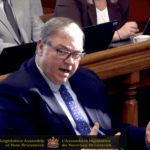“It’s a new relationship – government to government.” – Wotstak Sakum/Chief Tim Paul
By John Chilibeck – Local Journalism Initiative Reporter, The Daily Gleaner (with files from Theresa Blackburn)
First Nations in New Brunswick are close to cutting new tax-sharing deals with the Holt Liberal government, but the large title claims in the courts for all the province’s territory could still take years, if not decades, to resolve.
Unlike the previous Progressive Conservative government, which cancelled the decades-old tax agreements and mounted a spirited legal defence against the Wolastoqey Nation’s Aboriginal title claim, the Liberals are trying to see eye-to-eye with Indigenous leaders.
Meghan Cumby, a provincial spokesperson, said government officials have been meeting separately with both the Wolastoqey and Mi’gmaq nations to discuss new tax agreements.
“These negotiations are proceeding with a government-to-government lens, and we are committed to that approach,” she wrote in an email. “It is our collective goal to see agreements in place for April 1, or at least retroactive to April 1.”
The sides are negotiating two separate tax-sharing agreements – one for the six Wolastoqey communities that hug the St. John and Tobique rivers in western New Brunswick and the other for the nine Mi’kmaq communities near the eastern coast.
Patricia Bernard, the chief of Madawaska Maliseet First Nation, told Brunswick News that discussions with the Liberals have been fruitful. When elected last October, the Liberals promised to forge a better relationship with Indigenous communities.
“Talks are progressing,” said the leader of the small community tucked beside Edmundston in northwestern New Brunswick.
Former premier Blaine Higgs axed the decades-old agreements in 2023, arguing they created an unlevel playing field between First Nations and encouraged Indigenous communities near the Trans-Canada highway, like Madawaska, to compete unfairly with other New Brunswick
businesses.
Unique in Canada, the deals were worth close to $50 million annually. Higgs didn’t like them because the benefits weren’t spread between the First Nations equally or based on their population sizes and because they bled provincial coffers of revenues.
Madawaska and St. Mary’s First Nations, for instance, have businesses within thriving cities and both accumulated more than $100 million each in the last 18 years of the deal, whereas Tobique, with a bigger population but located near the tiny community of Perth-Andover, only collected $1 million.
As an alternative, the Higgs government tried to forge new economic partnership agreements with First Nations that would see the province spend money on priorities within those communities, but only five of 15 signed on. Many chiefs bucked what they perceived as paternalism.
Under the old agreements, a First Nation received 95 per cent of funds collected from provincial sales, tobacco and fuel taxes, along with gaming revenues, from businesses on their reserves, for up to $8 million annually.
Any revenue collected above $8 million would see the First Nation collect 70 per cent, with the rest going to provincial coffers.
The idea was to promote self-sufficiency and entrepreneurial success in Indigenous communities, whose on and off-reserve population is close to 18,000.
Bernard predicted that the new formula would be similar.
“What needs to be understood is the purpose of these agreements,” the chief said. “That was what was lacking with the previous government. Why are these agreements here and what’s the purpose? It isn’t just the province saying, ‘Oh, we’re being nice.’ There’s a legal basis for them.”
Bernard, a lawyer by profession, said that according to the federal Indian Act, in force since 1876, Indigenous people and reserves are under federal, not provincial, jurisdiction, raising implications for how revenues are raised on First Nations.
“The province of New Brunswick doesn’t meddle in Nova Scotia or P.E.I. or Quebec’s jurisdiction. That’s their jurisdiction. So that basic understanding of the jurisdictional separation has to be the basis of these agreements.”
She also pointed out that Canada was a signatory of the United Nations Declaration on the Rights of Indigenous Peoples and that one of its articles was the right to self-determination and self-government, including the “means for financing their autonomous functions.”
Bernard is tired of hearing some non-Indigenous people say that First Nations are leeching off other taxpayers. She said the old tax-sharing agreement was not the province sharing revenues with First Nations, but the other way around.
“It saddens me that people can form an opinion without being informed. It’s very important to make your opinions based on the correct information. Education and understanding are key. Ask yourself, ‘Why is this happening?’ Dig deeper and you will find out the legal basis.”
She said the revenues would benefit many Indigenous communities by providing funding for roads, infrastructure, housing, education and health services, without the province telling them how to spend the money.
On the Aboriginal title front, the chief said she wasn’t sure if the case would keep dragging on in court. Three industrial defendants – J.D. Irving, Limited; H.J. Crabbe and Sons; and Acadian Timber – are challenging a lower-court ruling in front of the Court of Appeal.
Until that’s resolved, the Wolastoqey Nation won’t drop its lawsuit.
But she said even if her side and the Liberals agree to talks on the claim, it could still take years, if not a decade or longer, to resolve, given what’s at stake. The Wolastoqey claim encompasses 60 per cent of the province’s territory, mostly on the western side.
She said her Indigenous nation wants to come up with a document like the one the Haida Nation and the Province of British Columbia signed in April of last year that recognizes that the Haida Nation has Aboriginal title to all of Haida Gwaii, formerly known as the Queen Charlotte Islands, an area of about 10,000 square kilometres.
That’s about one-quarter the amount of land the Wolastoqey leaders have claimed in New Brunswick.
“Negotiation is preferable to litigation,” she said, pointing out that both sides had probably already spent $1 million each in legal fees.
The provincial government under Higgs had fought for private lands to be taken out of the title claim. Bernard said it would be premature to say whether her side would still try to get access to the industrial defendants’ land or profit from it.
“I can’t answer that at this point,” the chief said. “The first thing to do is to sit down, nation-to-nation, and ask what the province and we are bringing to the table. What’s the legal basis and how can we move forward?”
She acknowledged that negotiations could take a long time.
“It will take years, possibly decades. It isn’t going to be easy. It’s not like a simple tax agreement where you’ll have an end date within a year. Not with title.”
Terry Richardson, the chief of Oinpegitjoig or Pabineau First Nation, said the Mi’kmaq nations and the province have set up a working group to negotiate a new tax agreement.
The working group includes the Mi’kmaq chiefs, representatives from MTI or Mi’gmawe’l Tplu’taqnn, the nonprofit organization representing the communities, and provincial officials.
“We’re not calling it a tax agreement, by the way. We don’t look at it that way. We look at it as economic reconciliation with the goal of self-government.”
Richardson said the idea is to strike a deal that’s beneficial to both Indigenous communities and provincial taxpayers.
He referred to a 30-page report by Fred Lazar, a business professor at York University in Toronto, commissioned by his community and presented to the Higgs government in 2021.
It showed that First Nations in New Brunswick had lower rates of employment, higher rates of unemployment, and less economic growth than other Canadian communities. Lazar wrote that a key instrument to making these communities more self-sufficient was to allow them to retain tax revenues, which have a spillover effect, driving more economic growth.
The academic used examples from across Canada to show that First Nations with more taxation powers have thrived economically.
“If First Nations prosper, everybody prospers,” the chief said. “Just look at the numbers. The numbers don’t lie.”
Richardson said his own personal goal is to see the need for the agreements to one day fade away.
“I don’t want us to be wards of the state,” he said. “At some point, I’d like it to roll back, with most of the revenues going to the province. Obviously, the agreement is meant to grow the economy of the First Nations. But once our economy is stable and we have much higher revenues flowing in, we wouldn’t even need these tax agreements.”
The Mi’kmaq Aboriginal title claim, which includes the entire eastern half of New Brunswick and overlaps the Wolastoqey claim, is still before the court. It’s much earlier in the process, having been filed last year, whereas the Wolastoqey first filed in 2020.
Richardson and Cumby, the provincial spokeswoman, said both sides remain interested in having discussions and putting a halt to litigation.
_________________________________________________________________________________________________________
“It’s a new relationship – government to government.”
– Wotstak Sakum/Chief Tim Paul
When asked about New Brunswick Premier Susan Holt’s approach to Indigenous issues, Wotstak Sakum Tim Paul is blunt.
“It’s like night and day,” he starts, comparing New Brunswick’s first female premier to her predecessor, Blaine Higgs.
“People still don’t understand what we need, what we want,” said Paul. “They still believe we’re out to take peoples land, and property. We are just looking for economic independence,” said Paul when reached by the River Valley Sun.
“Reconciliation comes in many forms. There is economic reconciliation, and social reconciliation. The important thing is having the difficult conversations, and she’s up to having the difficult conversations. That’s the only way we can achieve reconciliation.”
In her first 100 days in office, Paul said Premier Holt has had face-to-face meetings with leaders and is willing to negotiate in good faith.
“It really is a new relationship,” said Paul. “There was no relationship with Blaine Higgs,” he added. “This is a welcome change.”
Paul said there is hope again in the Indigenous community regarding self-determination.
“That’s all we want, to be the ones who decide our own destiny. In the past, we were always told what to do and how to do it. Her approach is very collaborative.”
Paul also pointed to the respect he’s seeing on both sides of the table.
“Tax sharing agreements help everyone,” said Paul. “Just ask the contractors who helped us build houses, and the ones who installed our water and sewer lines here. Our success ensures the community succeeds.”
Paul is looking forward to having a new tax agreement for his community.



